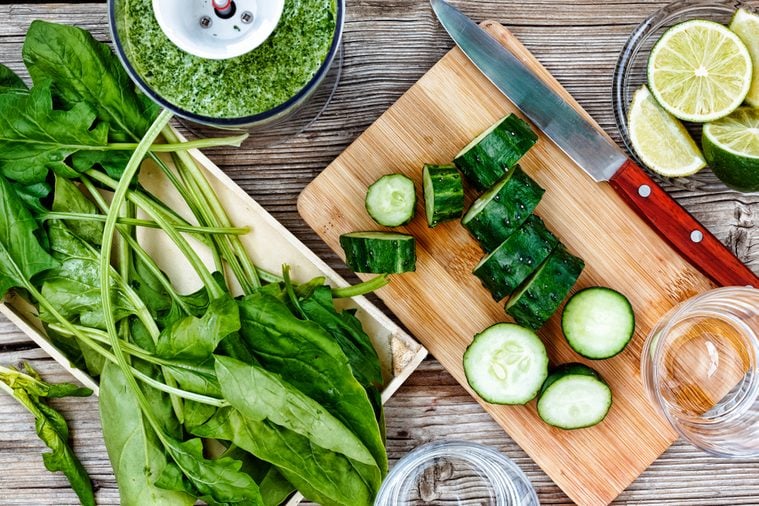
The detox idea can be dangerous
You might be enticed by the idea of a detox or cleanse when you have an impending event you want to shave a few pounds off for—a college reunion, an ex’s wedding, or the onset of swimsuit season. Despite promised weight-loss results or what your friends may tell you, detoxes are a bad idea, according to senior director of nutrition at Virtual Health Partners Rachel Daniels, MS, RD. “Detoxes of all types are intended to flush the system of the numerous toxins that are unavoidable in our day-to-day lives,” she explains. “While the results, including rapid weight loss and feeling light and energized sound great, there are some serious downsides and even dangers to following these detox diets.” Here are 42 better strategies that are healthier and guaranteed to help you drop pounds.
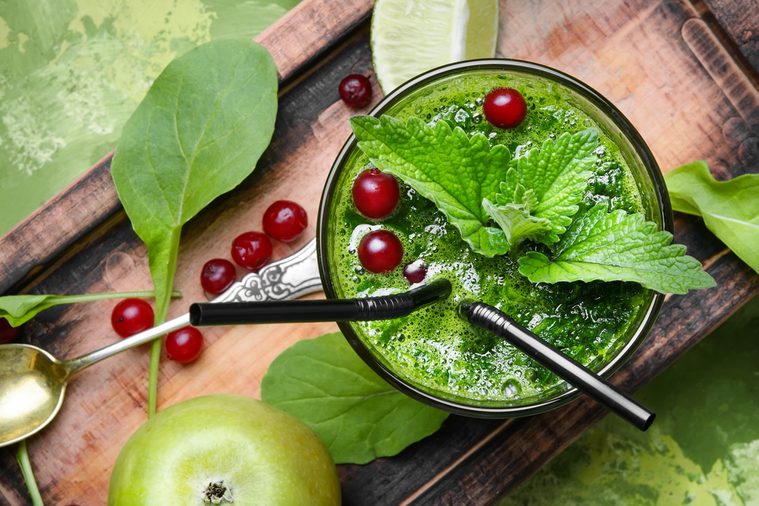
Don’t drink your diet
An all-liquid plan might seem like a simple way to shed pounds, but these diets have issues, Daniels says: Your body needs solid food to function at its highest potential. And not just in terms of your energy levels: “All liquid detoxes can lead to several problems, such as vitamin and mineral deficiencies, changes in blood pressure or blood sugar, and a lack of energy. You might experience stomach discomfort, diarrhea from the laxative properties of certain detox components, or even constipation due to minimal fiber,” she explains.
Your work and social life could be impacted too if you’re trying to only slurp your calories: “The lack of food can lead to nausea, lightheadedness, moodiness, and lethargy, which make daily activities, like work, exercise, or taking care of your family difficult,” she adds.
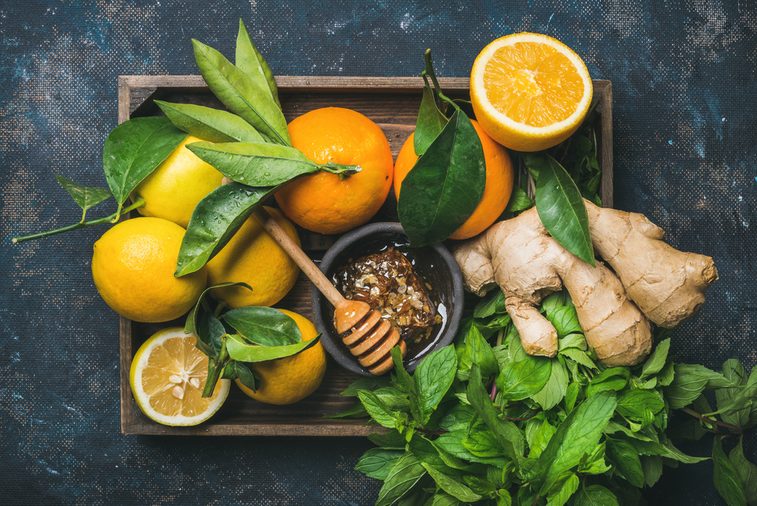
Research before you dive in
If you truly want to attempt a dramatic shift in your diet, Daniels says, do some research. Start by talking to your doctor about the potential risks. The reality is that few of these plans hold up to scientific rigor, and your doctor is likely to veto the idea. Any weight you drop with a detox tends to be temporary: You’ll lose water and potentially muscle, and those aren’t things you want less of. “The strict rules can be tiring and promote disordered eating behaviors rather than long-term, healthy changes,” explains Daniels. “They provide the false impression that a quick fix diet can undo any ‘damage’ that is done with previously unhealthy habits.” Don’t fall for the quick fixes; try this instead: Here are some natural ways to rev up your metabolism.

Skip the Master Cleanse
This one is all over social media—no doubt you have friends or family that swear by it. The plan is to only drink tea or lemonade that’s made with maple syrup and cayenne pepper, along with a few other beverages. The goal is an intestinal cleanse. You most definitely will be running to the bathroom every hour or so, but the truth is, your digestive system does a fine job of cleansing itself when you care for it. “Taking irritants such as cayenne pepper to stimulate diarrhea, drinking salt water to osmotically pull water out of your body and into your gut, and then a stimulant, diuretic, and appetite suppressant in a dieter’s tea isn’t healthy,” says Daniels.
“Our body has its own detoxification system and it is quite effective! Our liver, kidneys, intestines, colon, skin, and immune system all help process and eliminate harmful substances from our body and keep us healthy. It is best to support this natural detoxification with long-term healthy habits,” she shares. The key to detox—sans a program or specific liquid—is to eat a healthy, balanced diet, stay hydrated, and exercise regularly, she adds.
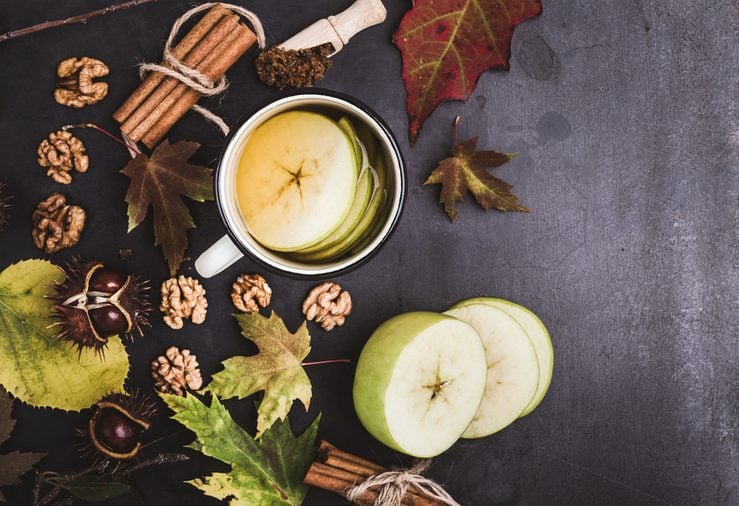
Avoid any cleanse that last more than three days
If you test out the Master Cleanse one time is your system going to shut down and your whole life and body fall apart? Probably not, says Anna B. Guanche, MD. But any cleanse that lasts beyond three days can cause dehydration and electrolyte imbalance—two conditions you don’t want to mess with. “If you cleanse in excess, it might result in a trip to the emergency room for IV fluids and electrolyte adjustment to avoid cardiac arrhythmia,” she warns. “Our bodies can go in starvation mode and you will gain more weight from eating less when you finally do start eating again.” Check out these cleansing foods that naturally detox your body.
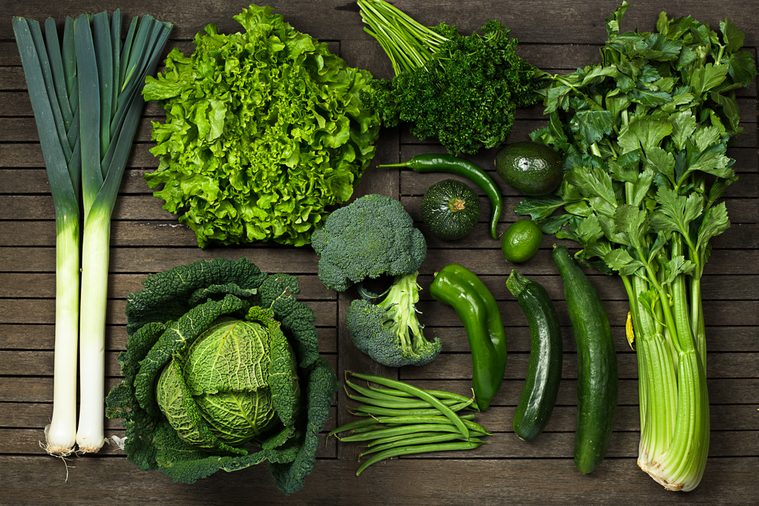
Duck high colonics
For some people, medical therapies that remove nonspecific toxins from the colon and intestinal tract by wiping out everything you have is essential to their health, but most people don’t need these regularly. What’s even scarier about this new trend, according to Dr. Guanche, is the fact that nonprofessionals (people who don’t have training) are performing colonics. “This procedure can be dangerous—tubes are inserted into the gut. In rare cases, these can cause colon irritation and rupture,” she warns.
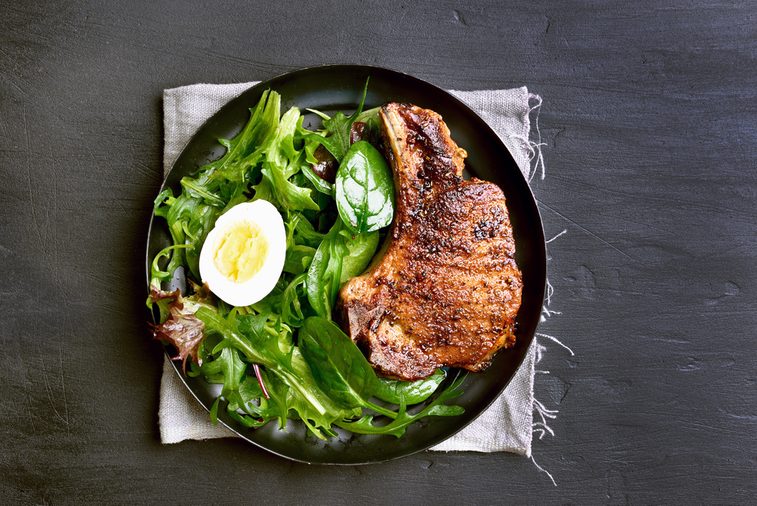
Stay away from the Five Bites detox
Yep: you get five bites of lunch and dinner—and you’re supposed to skip breakfast. David Greuner, MD, of NYC Surgical Associates can’t wrap his head around this tactic, as it doesn’t stipulate that the bites come from healthy food. “That is like saying you can have five bites of fast food for lunch and dinner each day and be healthy! No way! Not only is this detox just basically starving you, which is dangerous, but you are not going to be getting the proper nutrients you need each day,” he explains. Here’s how to eat healthy without even trying.
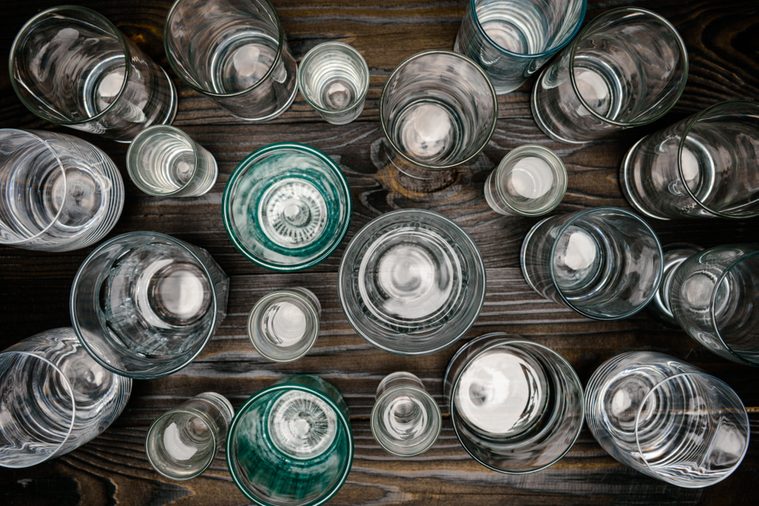
Don’t buy detox supplements
In addition to cutting back on food in a dramatic way, says Nancy P. Rahnama, MD, APC, some people try drugstore detox pills to speed along the process. They’re a bad idea: You can quickly become severely dehydrated, warns Dr. Rahnama: “Over-the-counter supplements will increase water loss through the gastrointestinal tract and worsen possible electrolyte imbalances and dehydration that may be associated with fasting and/or decreasing food intake,” she explains. Another one to avoid: 8 things you need to know about using dandelion to detox.
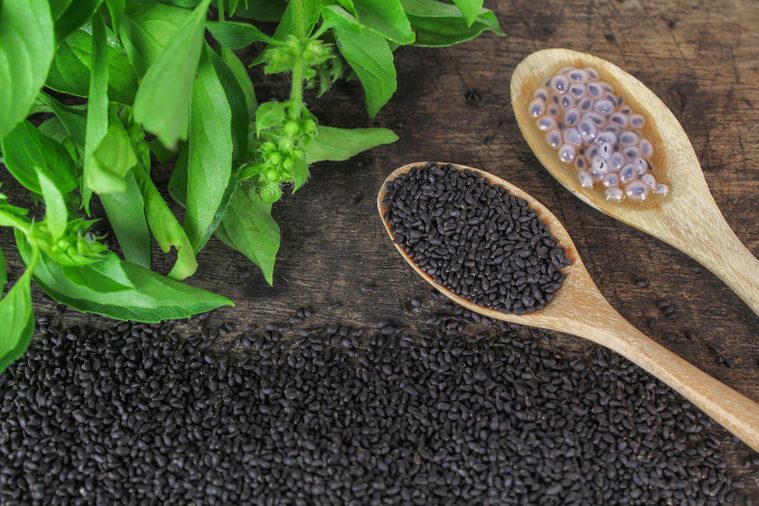
Easy on the laxatives
While sometimes doctors prescribe these meds, they’re not for everyone, warns Dr. Rahnama. “Laxatives will often worsen symptoms of dehydration and result in weight loss due to diarrhea, which is not actually good weight loss. This type of weight loss will come back as soon as the patient increases salt intake and regains the water loss,” she explains. Even worse, you could lose some of your body’s natural motility that encourages a bowel movement.
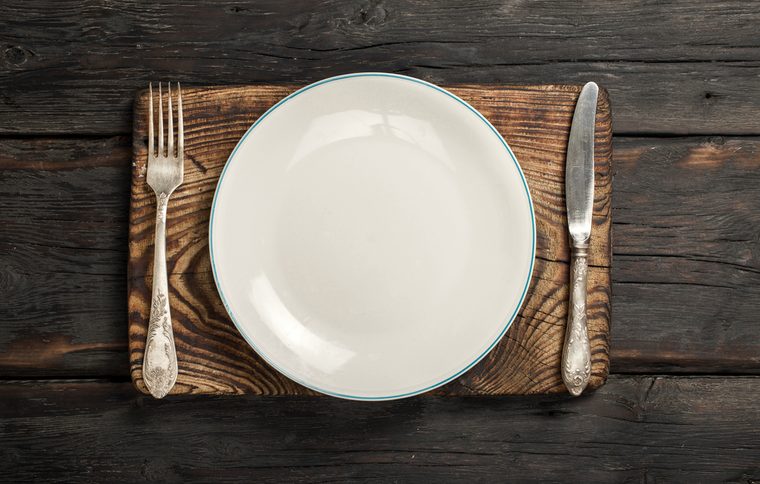
Avoid fasts—unless you check with your doctor
Fasting can be appropriate for some people, but it’s not a practice to take lightly: “Intermittent fasting is becoming more common and has been used for centuries to aid in cleansing the gastrointestinal tract and aiding in weight loss,” Dr. Rahnama explains. “Fasting can be done anywhere from 16 hours between dinner and breakfast the next day, 24 hours from one meal to the next meal the following day, or even multiple days in a row. Although recent studies have shown that this type of approach is effective for weight loss and decreasing insulin resistance, it can also result in symptoms of dehydration and malnutrition when done for excessive periods of time.”
Some people should definitely avoid fasting, or make sure it’s supervised. “If your health is at all compromised, have blood work done to ensure adequate kidney function, electrolyte levels, blood pressure,” she explains. Also check that any prescriptions you’re taking can be kept up during a fast: “Many daily medications need to be taken with food and if taken on an empty stomach may result in gastritis or even a gastric ulcer.”
Okay, you heard what not to do, now read about the only cleanse nutritionists want you to try.
